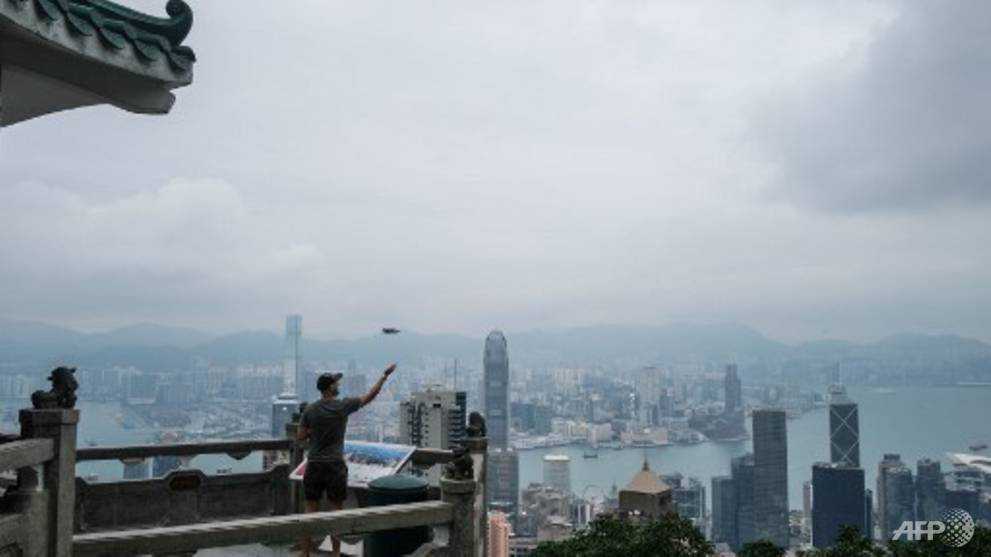Hong Kong, world’s most visited city, faces tourism bust
21 November, 2020

A huge selection of parked tour buses are actually gathering dust at a good northern Hong Kong container interface, having been off the street for 10 a few months since authorities banned non-resident arrivals into the location due to COVID-19.
The area has developed into "bus cemetery", said Freddy Yip, president of Hong Kong's Travel Agent Owners Association. He explained the past British colony - that was the world’s top rated tourist city destination this past year - faces a similar fate by the end of November, when the federal government ends a wide-ranging wage subsidy program which has helped about 2 million staff members in all types of industries.
The programme was introduced in June and renewed in September, however the Hong Kong government has eliminated an extension beyond the end of November citing the high cost, leaving various tourism-dependent businesses on the brink of collapse, unable to find other revenue sources and unable to pay wages.
“If indeed they cannot see any light before them, they will just stop and slice their losses,” said 70-year-old Yip, who spent some time working in the trade for nearly 50 years.
A good spokesperson for the Hong Kong federal government said it could "keep a close look at on the most recent situation and respond regularly," but gave no further details.
About 56 million persons visited Hong Kong this past year. The town was ranked number 1 for arrivals globally in 2019 by research firm Euromonitor International. Visitors, almost all of them from China, happen to be drawn to its vibrant mix of cultures, dramatic harbour opinions and world-class shopping.
The global finance hub makes about 5 % of its gross domestic product, or around US$18 billion, directly from tourism, not counting investment property in regional shops and eating places. Hong Kong's tourism sector directly employs about 260,000 people, based on the government.
Chinese visitors typically spend more per day compared to the average resident in baby formula, cosmetics and luxury goods, motivated by a perception that Hong Kong has better top quality standards than in the home. That way to obtain spending was cut off in early on February, when Hong Kong sealed its borders to China, with exemptions limited to a tiny number of organization travellers.
BUBBLE TROUBLE
Visitor arrivals have been down 96 % to 99 % year-on-year on a monthly basis since February, according to government figures. A travel bubble with Singapore - permitting a restricted number of persons to move between your cities after being analyzed for the virus - is due to get started this week, but isn't more likely to halt that decline, sector executives said.
The arrangement lets travellers forgo quarantine, but is initially limited by one daily flight of only 200 passengers each way. That is clearly a drop in the ocean for Hong Kong, which establish its own record in January 2019 with 6.8 million guests, incorporating 5.5 million from China.
Tour instruction Mimi Cheung, 46, said she was pessimistic about the travel bubble, as a result of limited number of people, strict regulations and high costs - around HK$2,000 (US$260) for mandatory virus tests, plus around HK$6,000 (US$774) to buy a tour in either city.
“The government should open the mainland border under safe conditions. It'll bring some desire,” said Cheung, who offers found temporary work as a night security guard to provide for her parents and two kids.
Hong Kong leader Carrie Lam has said reopening the border with China is always a priority, but Chinese officials have displayed very little indication they are willing to do so until virus cases fall to zero on Hong Kong.
The city's government has been trying to spur regional tourism by offering free tours for small groups, but operators say it's been little help.
A large number of travel agencies have got told staff to have unpaid keep from December, saying they can no more afford to fork out salaries or lease, according to staff members interviewed by Reuters, travel associations and local media reports.
Violent anti-government street protests on the second half of this past year discouraged some tourists, leaving various operators without cash buffers to weather condition this year's crisis.
The city's meetings and conventions business can be likely to visit a 90 per cent earnings drop this year, equal to about HK$50 billion (US$6.45 billion), explained Stuart Bailey, chairman of the Hong Kong Exhibition & Convention Industry Association.
The sector, which employs around 80,000 people, has already established to cancel almost all of this year's events, he said.
"People are not optimistic we will be back to 2019 amounts for at least 18 months to two years."
Source:
TAG(s):
